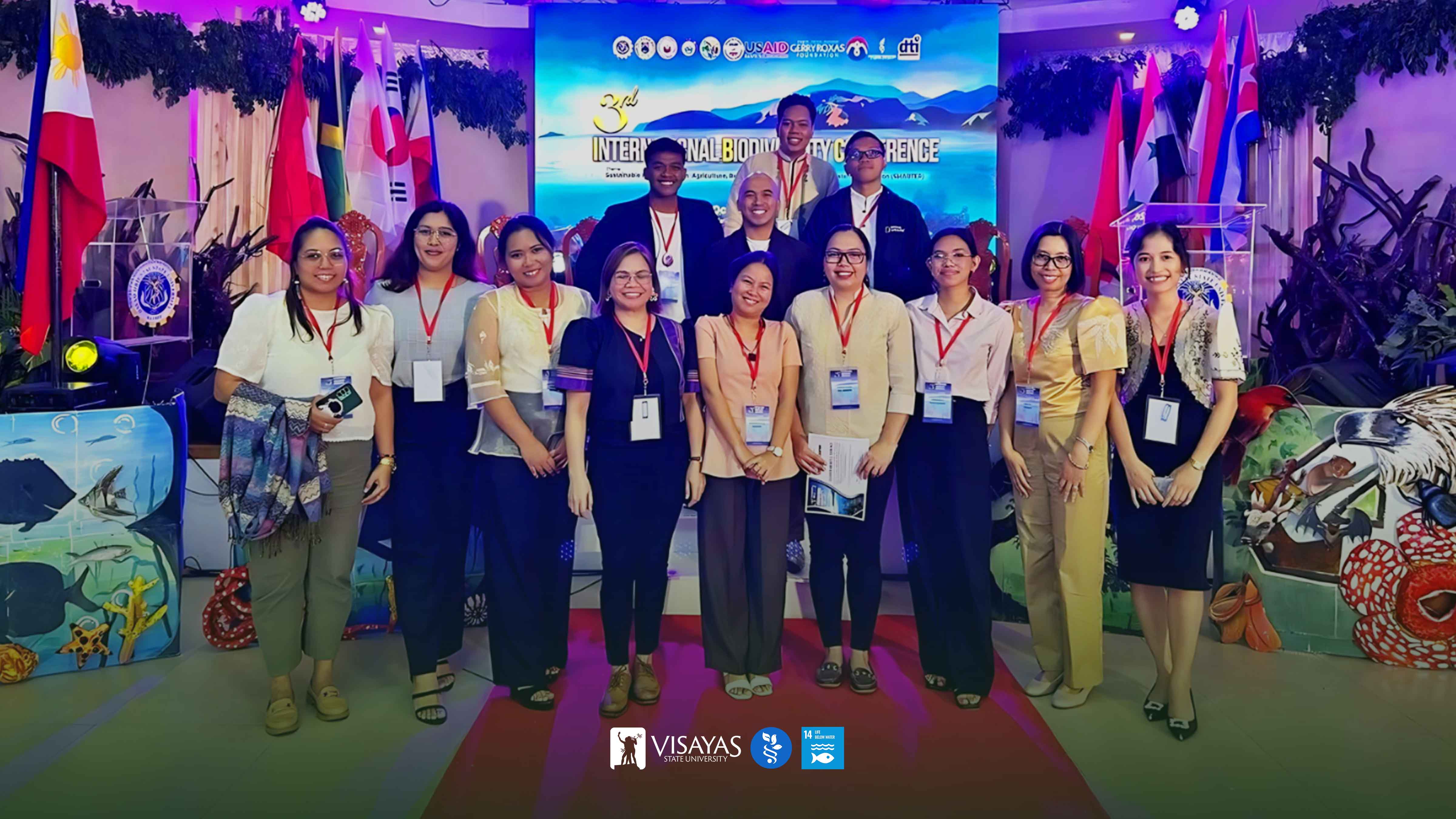Biology faculty wins best paper in marine, freshwater sciences federation confab

Mr. Rafael Junnar P. Dumalan presented his paper on “Combined Effects of Temperature and Food Quality on the Growth and Development Rate of Acartia tonsa.” This paper provides valuable insights into the thermal tolerance and nutritional requirements of copepods (tiny crustacean zooplankton), crucial for understanding their role in marine ecosystems and the possible response of zooplankton to ocean warming and eutrophication.
He is among the 10 faculty members and 6 research staff led by DBS Head Dr. Cheryl C. Batistel who presented their recent academic works and scientific findings, ranging from the basic research and extension to policy briefs at the FIMFS Annual Convention held at Honey’s Hotel, Mati City, in Davao Oriental.

The VSU delegates shared 11 oral and 7 poster presentations at the two international conferences. Their research studies ranged from plankton and macroinvertebrates as water quality indicators; fish and herpetofauna biodiversity; riparian and beach forest assessments; microbes as rice productivity enhancers; impacts of climate change on copepods and peatland macrophytes; physicochemical and socio-economic status of the riverine ecosystem; and a policy brief on the protection and conservation of the lake.
The international conferences were hosted and organized by Davao Oriental State University from October 22 to 26, 2024. These annual scientific gatherings tackle issues and problems the planet faces, such as ecosystem damage, water pollution, and global warming.
As an organization, FIMFS fosters partnership and collaborative efforts that catalyze positive change in the field of marine and freshwater ecosystems through research and conservation.
The FIMFS Convention serves as a venue for the exchange and updating of research outputs, as well as a platform for mentoring young scientists, where they focused on the theme, “BLUE HARMONY: Regenerating Our Aquatic Worlds.”
Meanwhile, the theme for the 3rd IBC was “Sustainable Management in Agriculture, Regenerative Technology, and Ecosystem Restoration (SMARTER),” which aims to address pressing global issues related to biodiversity loss and environmental degradation by promoting sustainable agriculture, regenerative technology, and ecosystem restoration.
These international events brought together scientists, researchers, policymakers, environmentalists, and students from around the country as well as from other countries to discuss the recent scientific findings and results observed in the aquatic and terrestrial ecosystems.
Through interdisciplinary collaboration and shared knowledge, both events also aimed to discuss pressing issues and challenges to provide science-based decision-making and policy development in harmony with human activities and the natural environment.
This article aligns with Sustainable Development Goal No: 14 (Life below Water).

